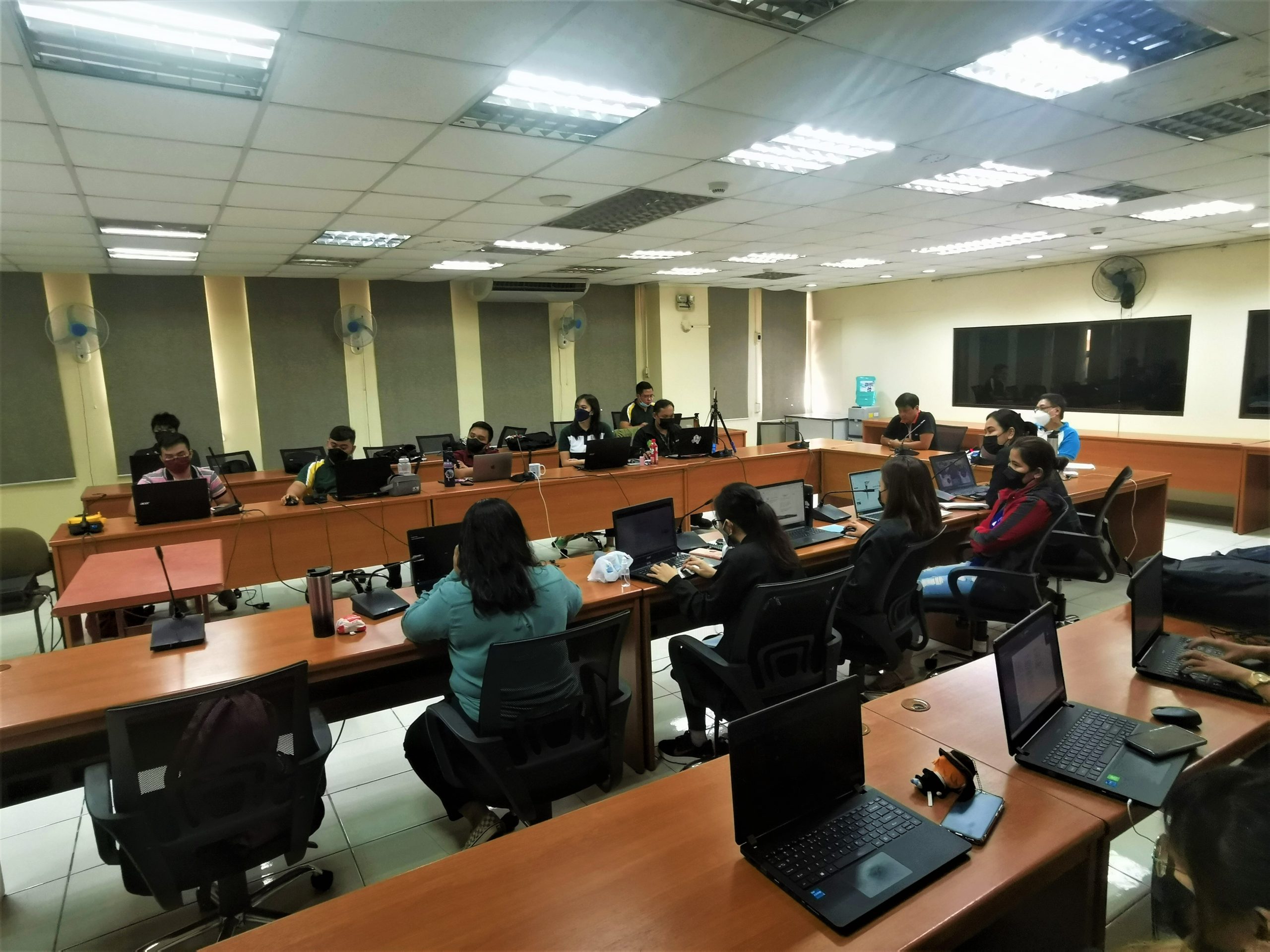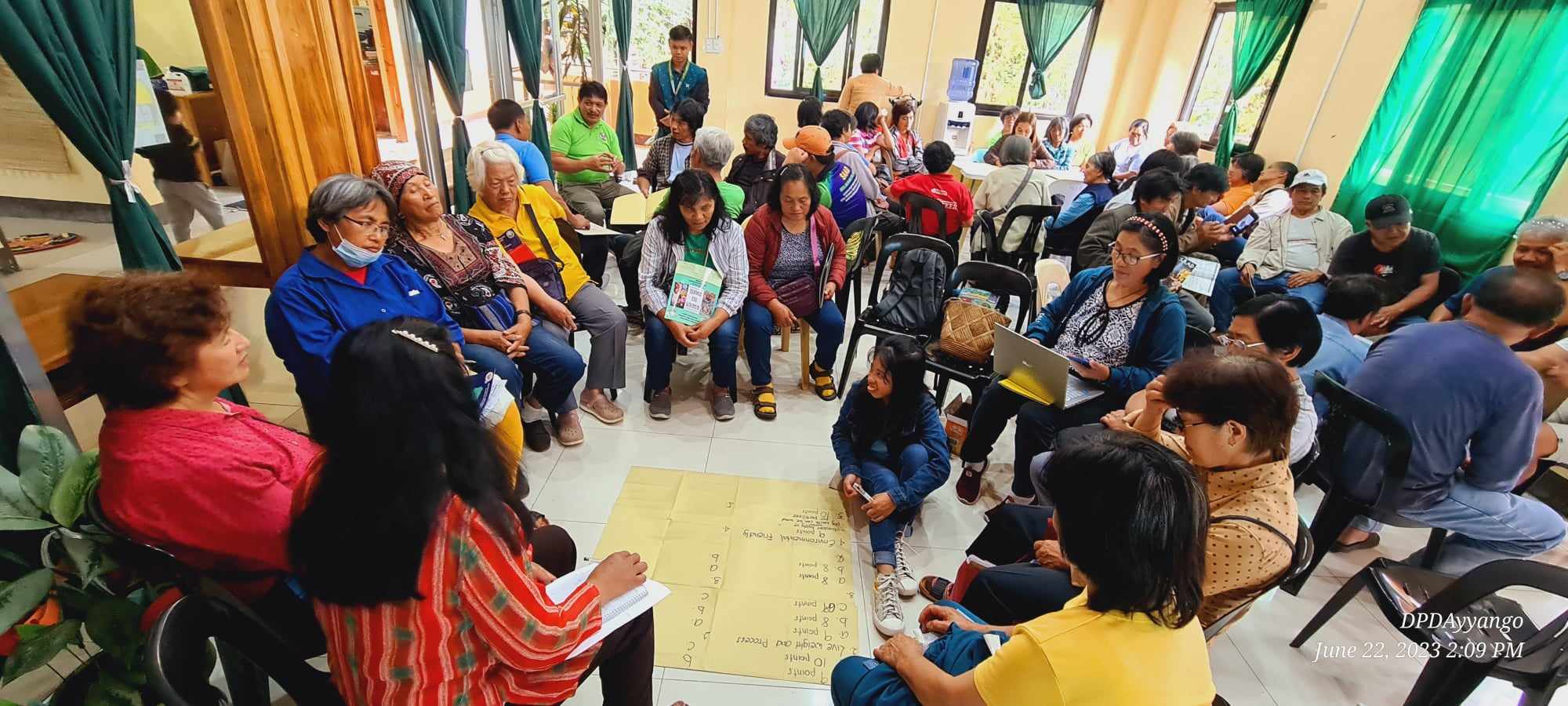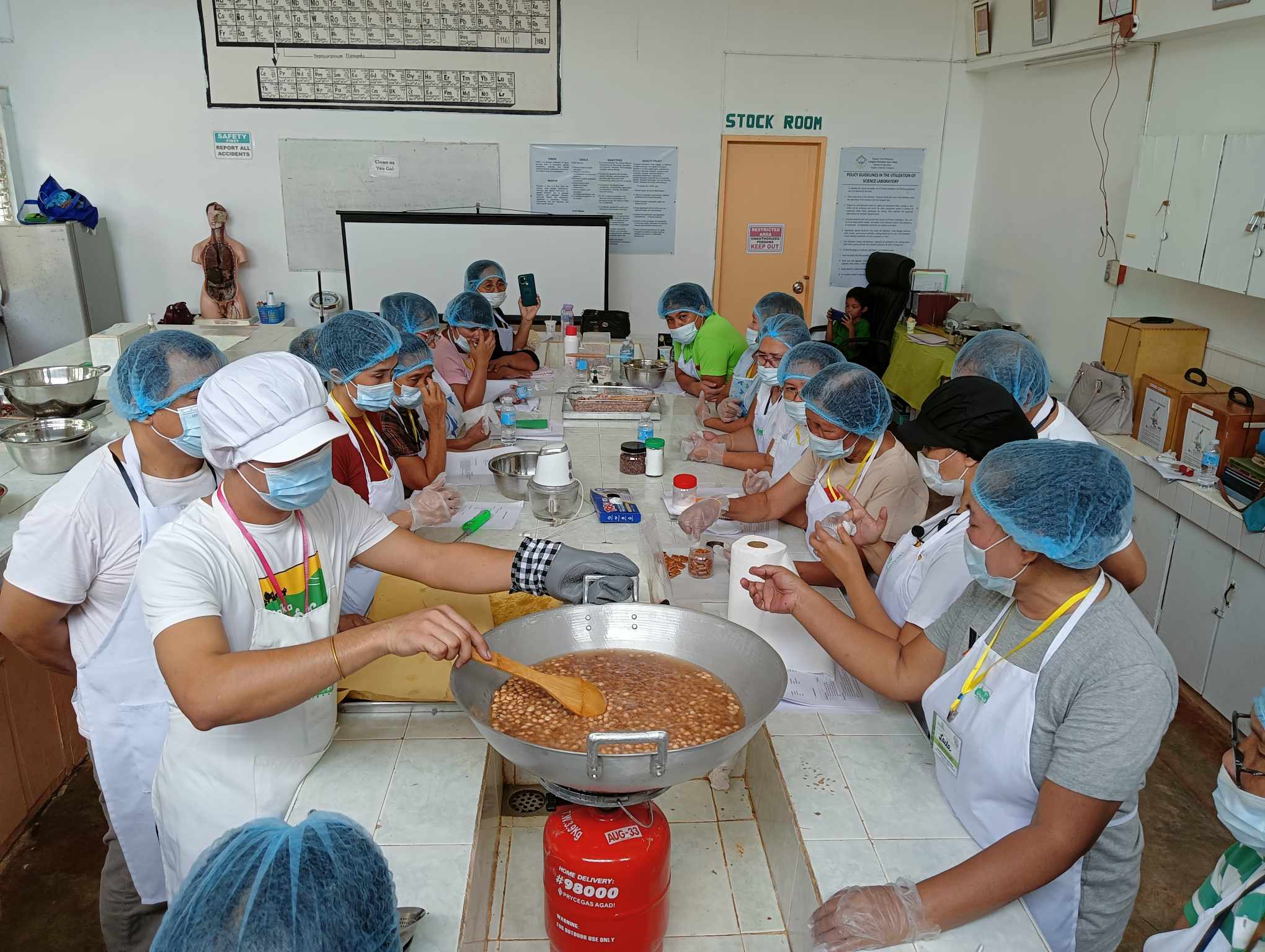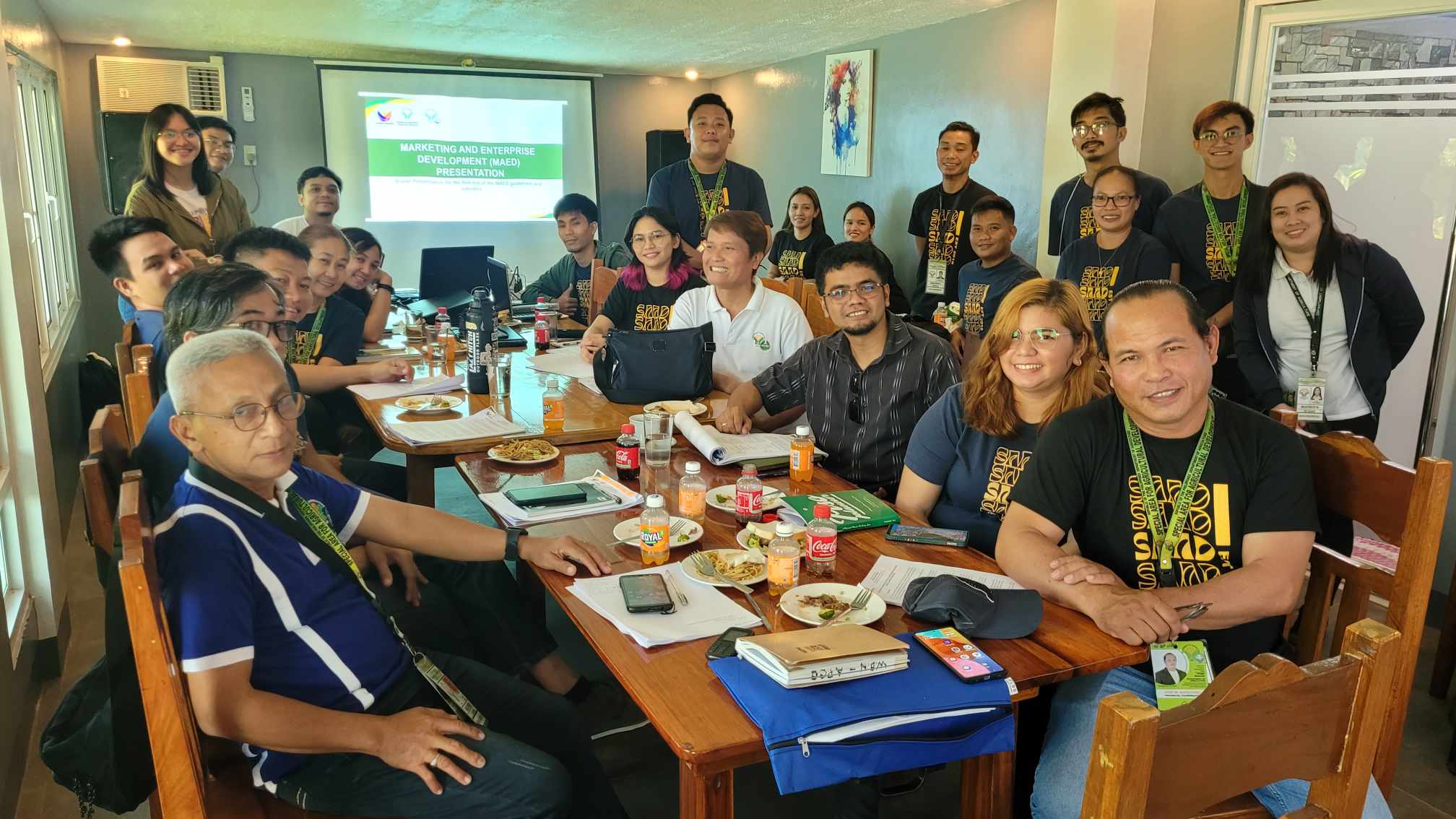QUEZON CITY, August 5, 2022 – The 11 Regional offices of the Department of Agriculture – Special Area for Agricultural Development (DA-SAAD) Program gathered for a midyear assessment and unified directions for the remaining months. Joining them are DA staff from new SAAD-covered Regions 1, 2, 3, and 4-A in preparation for the SAAD Phase 2 implementation.
Each regional field unit presented updates of the physical and financial accomplishments where the floor was opened for evaluation of the Program Steering Committee (PSC) members from the DA’s Budget Division, Special Projects Coordination and Management Assistance Division (SPCMAD), Bureau of Fisheries and Agricultural Engineering (BAFE), Bureau of Animal Industry (BAI), Bureau of Plant Industry (BPI), and Bureau of Agricultural Research (BAR).
Issues on the financial obligation and disbursement and database profiling are fast tracked targeting to close all accountabilities in the following months as Phase 1 completes.
Concluding the semester with the recognition of the regional units’ efficient performance, the top performing regions were announced before the closing of the four-day virtual activity.
With a total budget of Php 923,789,000 million for FY 2022, the SAAD Program had obligated 62% or Php 568,992,000. The top three regional operating units are Region 5 (81%), Region 6 (74%), and Region 8 (73%).
Meanwhile, the program disbursed 25% or Php 144,714,000 of the obligated funds. The top three regional operating units are Region 9 (52%), Region 12 (39%), and Region 4B (38%).
Evaluated through its physical (40%), obligation (30%), and disbursement (30%) shares, Region 5 ranked first in the overall physical and financial performance earning 72 points. Region 6 came in second with 68 points and Region 11 with 66 points.
Since its inception in 2017, the program which is set to conclude its Phase 1 this year, already implemented 3,461 livelihood projects serving 168,664 members of 5,953 farmers’ and fisherfolk associations, and 143,229 individual beneficiaries. It has also established 257 community-based enterprises operated by 9,104 entrepreneurs across 11 covered regions.
In his message, National Program Director Myer Mula extended his sincere appreciation to national and regional offices for their untiring support and enthusiasm in performing their tasks.
“Thank you for your excellent job which resulted in the approval of the program’s Phase 2. For the next 6 years, let us put in place the lessons learned in Phase 1. The NPMO will craft a standardized set of guidelines and policies to guide and improve our services in the next phase of the program which will cover all the regions, except for Bangsamoro Autonomous Region in Muslim Mindanao (BARMM),” underscored Dir. Mula.
FY 2022 Directions
Program Management Office (PMO)
A standardized manual on the PMO component covering the functions, activities, and experiences in all ranks from managerial, technical, and non-technical SAAD staff at the national, regional, and provincial levels will be crafted for the whole team’s guidance.
This is based on the study conducted by the national office that aims to define the structures and functions of the program staff and the internal system used by the program to facilitate its implementation.
Planning, Monitoring, and Evaluation (PME)
For PME, the following were the directions provided:
- assure full implementation of committed targets in the BEDs
- provide additional support to strengthen multiplier farms and related enterprises through savings utilization
- planning workshop and updating of proposals (recalibrate proposal), internal activities for Phase 2 implementation (multi-year planning)
- site validation for Phase 2 using savings, site validation should be within SAAD Phase 1 provinces
- capacity building of regional and provincial staff since some staff might be transferred to SAAD Phase 2 provinces
- crafting of Phase 1 terminal report
Public Relations and Communications
The SAAD will continue to produce information and educational materials to continue to raise public awareness and manifest commitment to transparency of the program and its activities and achievements utilizing online and print platforms to reach a wider audience.
The program will continue the production of the newsletter, coffee table book (per commodity), video testimonials, annual report, terminal report, books, news compendium, and other related publications.
SAAD’s partners for development
Department of Social Welfare and Development (DSWD)
For the Sustainable Livelihood Project (SLP) implementation, under the Zero Hunger Program, SAAD has partnered with DSWD.
The SAAD and SLP share a common objective to help the marginalized sectors improve their socio-economic status by providing a sustainable source of income through the establishment of community-based enterprises.
SAAD will submit the list of SAAD beneficiaries for cross-matching and validation to the DSWD-SLP database. The selected beneficiaries shall be provided with SLP livelihood interventions worth Php 15,000 per individual with counterpart technical assistance and other support from the SAAD.
Bureau of Agricultural and Fisheries Engineering (BAFE)
Meanwhile, with the presence of representatives from different agencies, synergy is strengthened between SAAD, BAFE, Regional Agricultural Engineering Division (RAED), and Agricultural Machinery Testing and Evaluation Center (AMTEC), to address issues on availability, specifications, and AMTEC accreditation of machineries and equipment for the beneficiaries.
The AMTEC discussed specifications as its support to actively contribute to the country’s mechanization efforts. The main objective is to establish standard specifications and performance indices for machinery and provide technical assistance through testing and evaluation.
It was agreed upon that more Manufacturers’ Forums and related activities should be done to increase the number of suppliers with AMTEC accredited products. AMTEC also offered to provide contact information of SAAD RPMSOs to suppliers whenever there are machineries needed to be procured.
Furthermore, BAFE is currently developing an Agricultural Bio-systems Engineering Management Information System (ABEMIS) serving as the DA’s repository to help and assist the implementers accelerate their capability to efficiently monitor and evaluate the implementation of all its agricultural and fisheries mechanization and infrastructure projects, from the proposal, validation, procurement, construction, and completion to operation. SAAD is already involved in providing project information to the ABEMIS.
For Community-based enterprise initiatives
With the approval of the SAAD’s guidelines on community participation procurement, it is a big advantage for the program’s Farmers and Cooperatives Associations (FCAs) who established community-based enterprises. The procurement method aims to prevent long periods and delayed delivery of interventions as inputs will be sourced locally, specifically from eligible SAAD associations who have multiplier farms and nurseries.
Thinking ahead, Dr. Mula reminded the regions to review the list of municipalities to cover following the top 1/3 municipalities with the highest poverty incidence and those belonging to the 5th and 6th class. The DBM’s recommendation for the continuation of SAAD can be translated to thousands of additional beneficiaries that will benefit from the agricultural livelihood projects offered by the program. With the refined implementation given the application of learnings and experiences from the Phase 1, SAAD ensures more efficient delivery of services that will benefit communities all over the country.
The virtual conference was attended by 92 participants from the national, regional, provincial SAAD staff, PSC representatives, and the DSWD. ###
Writer: Jennifer Valcobero, DA-SAAD NPMO Information Officer









This Post Has 0 Comments